shape digital change
become part of the megatrend
We provide support for internships, starting a job in a company, or setting up your own business

develop the nervous system of digitalisation
#informatics #digitalisation #automation #embeddedsystems #microcontroller #communicationtechnology #gps #softwaredevelopment #geoinformatics
#programming #automotive #smarthome #medicaltechnology #securitysystems
#human-machine-interaction #user-interface-design #raspberrypi #networktechnology #productdevelopment
Applied Computer Sciences offers you the ideal foundation to meet today's challenges with adapted technical solutions. This ranges from embedded systems in cars to the user-centred design of interactive applications to the localised processing of environmental data. As a graduate in Applied Computer Sciences, you have the ideal prerequisites to pursue a career in industry or academia.
The Applied Computer Sciences degree programme is designed to last three and a half years and includes a one-semester internship in a company. The structure of the programme and a wide range of electives and fields of study allow for flexible and individualised study.
fact sheet applied computer science
Degree: Bachelor of Engineering (B.Eng.)
Duration: 7 semesters (3.5 years)
ECTS points: 210
Start: October (winter semester)
Location: Deggendorf
Taught in: German (see language requirements)
Application period: 15 April - 15 September
Admission requirements:
- General German university entrance qualification, or please check your eligibilty at the DAAD if you own an international qualification
Prerequisites: Knowledge in science-based subjects in beneficial
Postgraduate opportunities:
- Master Applied Informatics
- Master Artificial Intelligence and Data Science
- Master High-Performance Computing / Quantum Computing
- Master Life Science Informatics
- Master Applied Research in Engineering Sciences
- Master Automotive Electronics
- Master of Electrical Engineering and IT
Fees:
- No tuition fees, only student union fee
- International students from non-EU/EEA countries are required to pay service fees for each semester. Click here to read about our service fees.
Contact:
- Information about the programme content: ai-b-info@th-deg.de
- General info on studying at DIT: prospective student advisors
- Information for freshers
career prospects
We live in a digital world and your work as a computer scientist is also influenced by it. You deal with processes that can be controlled by computers. Many industries are looking for experts who develop or improve hardware and software systems, including data networks. You develop computer systems for a wide variety of technical tasks. Examples include control devices for vehicles, devices for mobile use, devices for medical use and complex control and production systems for industry. Your tasks may include the design, development and implementation of new applications or the integration, configuration and optimisation of existing IT solutions. Depending on your interests, you will work as a software developer, a web developer, an IT consultant or a system specialist. As a graduate of the Applied Computer Science/Infotronics programme, you have excellent chances of finding a job.
Occupational fields for the Bachelor of Applied Computer Science/Infotronics degree programme are:
- Electrical industry, semiconductor industry
- Medical technology, biomedical engineering
- Automation technology, energy technology
- Automotive, aerospace technology
- Consumer electronics, household appliance technology
- Defence technology, security systems
- Insurance
- Public administration
- Navigation industry
- Software industry/software development
- Engineering and environmental offices
- GIS companies and software manufacturers
- Supply and disposal companies
subject overview
Overview of lectures and courses, SWS (Semesterwochenstunden = weekly hours/semester) and ECTS (European Credit Transfer and Accumulation System) in the Bachelor's degree Applied Computer Sciences.
| 1. Semester | SWS | ECTS |
| Mathematics 1 Algebra | 4 | 5 |
| Mathematics 1 Analysis | 4 | 5 |
| Basics of Electronic Engineering | 4 | 5 |
| Basics of Informatics | 4 | 5 |
| Programming 1 | 4 | 5 |
| Key Qualifications 1 (Economics / Media Skills and Self Organisation) | 4 | 5 |
| 2. Semester | SWS | ECTS |
| Mathematics 2 | 4 | 5 |
| Basics of Physics and Digital Technology | 4 | 5 |
| Basics of Metrology and Sensor Technology | 4 | 5 |
| Programming 2: Object-oriented Programming | 4 | 5 |
| Algorithms and Data Structures | 4 | 5 |
| Key Qualifikations 2 (Technology Ethics and Sustainability / Scientific Work) | 4 | 5 |
| 3. Semester | SWS | ECTS |
| Compulsory Elective Subject | 2 | 2 |
| Software Engineering | 6 | 8 |
| Operating Systems | 4 | 5 |
| Network Technology and IT Networks | 4 | 5 |
| 4. Semester | SWS | ECTS |
| Project | 4 | 5 |
| Data Bases | 4 | 5 |
| Project management | 4 | 5 |
| 5. Semester | SWS | ECTS |
| Industrial Internship | 24 | |
| Practice Seminar | 2 | 2 |
| Practice Accompanying Course (PLV) | 2 | 4 |
| 6. Semester | SWS | ECTS |
| Subjects see specialisations (fields of study below) | ||
| 7. Semester | SWS | ECTS |
| Key Qualifications 3 (Rhetorics / English for Engineers) | 4 | 5 |
| Bachelor Thesis (BA) | - | 12 |
| Bachelor Colloquium | 2 | 3 |
Field of study: Embedded Systems |
||
| 3. Semester | SWS | ECTS |
| Digital Technology | 4 | 5 |
| Micro Controller and Sensor Technology | 4 | 5 |
| 4. Semester | SWS | ECTS |
| Components and Circuits | 4 | 5 |
| Industrial and Automotive Bus Systems | 4 | 5 |
| Compulsory Elective 1 | 4 | 5 |
| 6. Semester | SWS | ECTS |
| Hardware Modeling | 4 | 5 |
| Process Informatics | 4 | 5 |
| System Programming | 4 | 5 |
| Digital Signal Processing | 4 | 5 |
| Real-time Systems | 4 | 5 |
| Compulsory Elective 2 | 4 | 5 |
| 7. Semester | SWS | ECTS |
| Modelling and Simulation | 4 | 5 |
| Compulsory Elective 3 | 4 | 5 |
field of study: mobile und spatial systems |
||
| 3. Semester | SWS | ECTS |
| Spatial Reference Systems and Positioning | 4 | 5 |
| Basics of Geoinformatics and Geoinformation Systems (GIS) | 4 | 5 |
| 4. Semester | SWS | ECTS |
| Remote Sensing and Photogrammetry | 4 | 5 |
| Grid and Vector Data Processing | 4 | 5 |
| Web Programming 1 | 4 | 5 |
| 6. Semester | SWS | ECTS |
| Mathematics for Spatial Systems | 4 | 5 |
| UAS and Spatial Data Representation | 4 | 5 |
| Geo Data Processing and Automation | 4 | 5 |
| Web Programming 2 | 4 | 5 |
| Extended Informatics | 4 | 5 |
| Compulsory Elective 1 | 4 | 5 |
| 7. Semester | SWS | ECTS |
| Spatial Modelling and Algorithmic Geometry | 4 | 5 |
| Compulsory Elective 2 | 4 | 5 |
FIELD of study: Internet of Things |
||
| 3. Semester | SWS | ECTS |
| Usability Interaction and User Interface Design | 4 | 5 |
| Microcontroller and Sensor Technology | 4 | 5 |
| 4. Semester | SWS | ECTS |
| Special Protocols of the IoT | 4 | 5 |
| Web Programming 1 | 4 | 5 |
| Business Administration for Founders | 4 | 5 |
| 6. Semester | SWS | ECTS |
| Economics Project for Founders | 4 | 5 |
| Software Project | 4 | 5 |
| Web Programming 2 | 4 | 5 |
| Compulsory Elective 1 | 4 | 5 |
| Artificial Intelligence | 4 | 5 |
| 7. Semester | SWS | ECTS |
| Compulsory Elective 2 | 4 | 5 |
| Compulsory Elective 3 | 4 | 5 |
Embedded systems are integrated computers that are embedded in technical systems. They are not immediately recognisable as computers, but perform complex tasks. They are programmed to monitor, control and regulate devices or processes. To do this, they have to process a lot of data and signals. They use of embedded systems is an important basis for progress in many branches of industry. In this field of study, you will acquire the knowledge and skills you need for the development, programming and application of embedded systems.
Mobile devices such as smartphones and tablets are regularly revolutionising the computer industry. At the same time, positioning services such as GPS and Galileo as well as navigation solutions have grown to become key technologies. The field of study takes up these future topics. In addition to the fundamentals of natural sciences and geography, this degree programme also provides you with the necessary information technology knowledge and skills to be able to process spatial data and develop solutions for mobile devices.
Internet of Things is a field of study for inventors and makers. Interactive systems and the Internet of Things have long since become part of everyday life. For example, when we use smartphones, virtual assistants, chatbors, smart homes, etc., we come into contact with both. Ultimately, people should be optimally supported by technology in the most diverse areas of life. To realise this, computer scientists with specific knowledge are needed. The Internet of Things degree programme makes you an IT specialist who can later work on innovative technologies, develop products or bring your own idea to the market.




